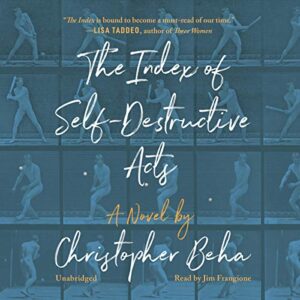All spring, I have been trying to re-learn to read. I’m in a book club with a group of women friends in my neighborhood—the kind of book club that focuses on the book, rather than the wine. (Caffeine, actually, is better with this group, because one must always be ready to heed to the sharp discussion.)
This month, our book is Faulkner’s Absalom, Absalom, a choice that came out of the discussion of the last book we read, One Hundred Years of Solitude, and we thought we would trace the often-mentioned influence of the former on the latter.
I’d read Absalom before; it has been one of the most foundational texts for me, and if I can get a bit evangelistic for a second, I think that reading Absalom, Absalom and Invisible Man together, perhaps with Native Son thrown in, can explain the last 50 years in America as much as they can the last 150.
But I approached the re-reading with trepidation, because I was worried that I just could not do it. And this I mean literally, that I could not slide down into the depths of the text and just stay there.
You, of course, know why.
Don’t try to tell me it’s not a problem for you, either. That you launch into the morning with a favorite section of Swann’s Way, spend the whole day reading draft legislation or gender theory, then wind up in the evening with a gin-and-tonic and The New York Review of Books.
The very fact that you’re not reading this on a ditto-machine bulletin, cranked hot from a metal drum laced with fragrant purple ink, or even a printed pdf with the snappiest Pagemaker fonts, like some folded and bulk-mailed church newsletter from 1995, means that you, too, are reading this on the Internet.
The problem of web reading—and the mental habits it engenders—is apparent: the flitting mind, the twenty-seven open tabs at the bottom of the screen, the constant invasion of commerce into realms thought otherwise un-penetrated. It is the One Weird Trick that ruins the deep existential focus that, in the end, means everything.
“I don’t really read all that much anymore,” an old work colleague admitted when I ran into him a while ago—and this was even before the pandemic. “There’s just so much long-form TV!”
But the problem is so prevalent that it now feels like a cliché to even bring it up as any kind of a problem, at all—as if it were anything other than just The Way Things Are Today. To do so feels like another predigested, empty gesture toward those Big Societal Problems that are constantly blaring from our collective screens, like “Kids and IPhones” and “Disinformation.”
At the same time—and maybe this is because I’ve known a lot of anti-tech “young fogies” over the years—I find the apocalyptic fears about “the future of reading in a digital age” frustrating as well. Even if those fears happen to be accurate—and I expect they are—so much worrying about it seems annoying in the same way that my relative who only sends text messages in complete sentences with subordinate clauses is also annoying.
So, I too am a sufferer of the Internet problem of reading. But what can you do about it?
The answer to the Internet problem of reading, sadly, is similar to that old G. K. Chesterton line about how “The problem with Christianity is not that it has been tried and found wanting, but that it has been found difficult and left untried.” So rather than draft a thousand words about the darkness, I will aim only to light one little clichéd candle.
Which is to say: Absalom, Absalom is going pretty well! It’s not an easy text to begin with, and I cannot say I am moving through it quickly, but moving through it I am. I can’t deny that it helps having read it previously, but it has been a long time, and there have been surprises on every page.
The sad truth about re-learning to read is that, like learning to pray and learning to exercise, it takes practice. Never mind that I once sat through a big family fight in 1993 zoning out easily because I was immersed in reading Stendhal’s The Red and the Black, something that seems unlikely—unimaginable—to me now.
It’s only the current prayer and exercise that count. And by that measure, you can pick up where you are. Against the doomsayers, I’m holding one forth for the promise of neuroplasticity—if it can heal trauma and addiction, it can relax and lengthen my perspective once again.
My daughter is restless and, with a cadre of bookish friends, has never thought of herself as much of a reader. Yet lately, she and I have taken to reading out loud chapters of the New Testament to one another—and day by day, chapter by chapter, the reading has put a scaffold on the verses she’s heard in Liturgy, established landmarks in the sacred Story—all underscored through this shared verbal embodiment.
Since we’ve been doing that reading together, I have seen her for the first time huddled by herself, reading solo. And I’ve retreated to the opposite side of the room, mind scrolling through the vivid, continuous dream of Faulkner’s sober vision.
Caroline Langston was a regular contributor to Image’s Good Letters blog, and is writing a memoir about the U.S. cultural divide. She has contributed to Sojourners’ God’s Politics blog, and aired several commentaries on NPR’s All Things Considered, in addition to writing book reviews for Image, Books and Culture, and other outlets. She is a native of Yazoo City, Mississippi, and a convert to the Eastern Orthodox Church. She lives outside Washington, D.C., with her husband and two children.





